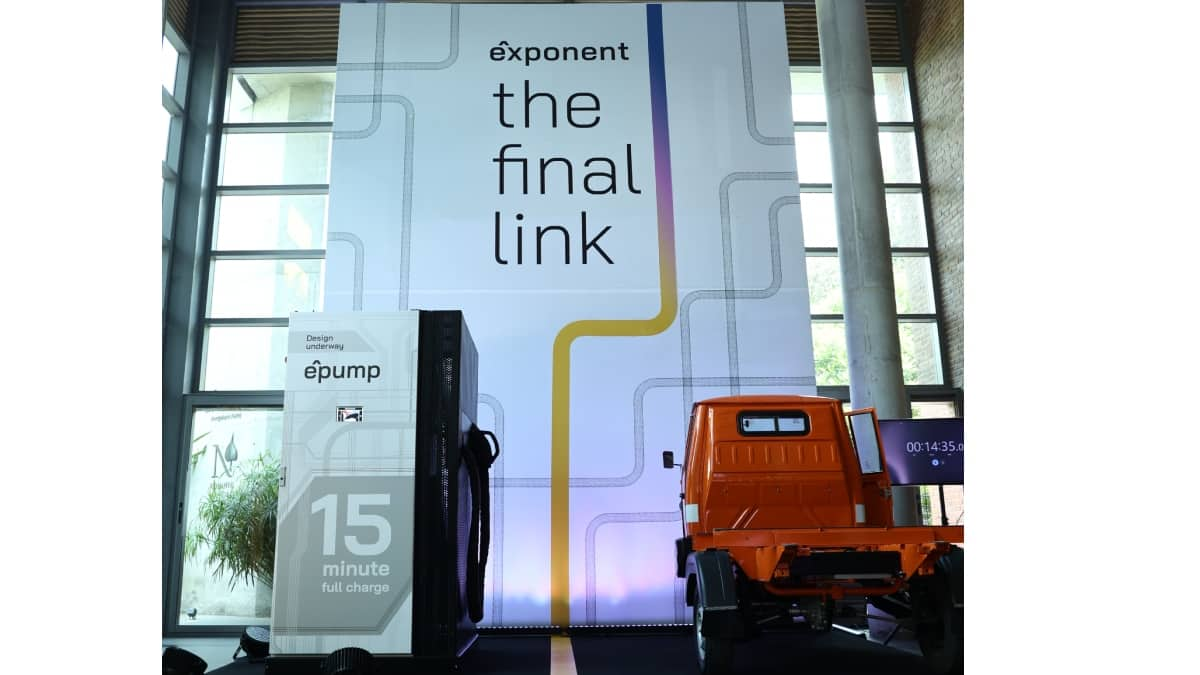Exponent Energy gets Rs 220 crore investment, expansion to 5 cities and e-bus partnership on cards in 2024
Bengaluru-based deep tech start-up Exponent Energy can play a key role in disrupting electric vehicle space with its 15-minute charging technology. It has raised Rs $26.4 million (Rs 220 crore) in series B round led by Eight Roads Ventures, including a strategic investment from TDK Ventures – marking their first investment in India’s EV sector. Along with two new global investors, the round witnessed participation from all existing investors like Lightspeed, YourNest VC, 3one4 Capital, AdvantEdge VC, and the family office of Dr. Pawan Munjal, Chairman & CEO, Hero MotoCorp.
With this, the company has raised $44.4 million (Rs 370 crore) in total so far and aims to deploy the fresh funds to scale its presence to 5 new cities by March 2024. It also plans to expand its offering in the electric passenger vehicle space and enter the intercity e-bus segment in CY2024. It has an ambitious target to have 1,000 e^pumps (charging stations) and 25,000 EVs powered by Exponent by 2025.
He says for the company it is not a “sprint race” but a “marathonish approach”, where it needs investors who “fundamentally believe in you, the team, the approach.”
At present, Exponent Energy has installed its e^pump (charging station) in more than 30, which will be “scaled up to 100 very quickly”. In terms of vehicles, 600 EVs using Exponent Energy’s tech are currently running in Bengaluru.
New geographies and segments
The start-up in a short span of three years has not only demonstrated its capabilities in a lab set-up, but also got Altigreen’s electric three-wheelers using its 15-minute fast-charging being used on commercial basis in Bengaluru. It recently alsopartnered Murugappa Group’s Montra Electricto deploy its fast-charging tech in electric three-wheeler (passenger) segment.
“In the last 8 months, although we’ve given customers an option to charge anywhere, 100% of vehicles using Exponent’s tech have been charged on our network. This shows that if you experience rapid charging there is no turning back. Last year, it was just about proving the product in the market. In the next 24 months we will focus on operations, manufacturing, business, and network expansion. This to not just one city, but more than 5 cities, across new categories such as electric three-wheeler passenger and e-bus segment,” says Vinayak.
In an earlier interaction, Vinayak had revealed that the company was looking beyond the e-three-wheeler segment and would look atbus segment, and then look at two-wheelers, lorries and tractor.
He has now confirmed that next year the company will pilot its technology for an intercity e-bus. “We definitely believe in opening one corridor, testing it out and then start scaling it up.”
The idea is to first pilot the inter-city buses on a single route, and then depending on the learning expand it to other geographies.
Being CAPEX light
One of the key challenges for most start-ups in the electric vehicle industry is that if their business model is CAPEX (Capital Expenditure) heavy, it means too much reliance and focus goes towards securing new investments. Exponent Energy in that case has focussed more on its deep tech expertise and aims to continue to be CAPEX light.
“We are not very CAPEX heavy. Fundamentally if you look at a city where we are going to set up 100 charging stations, we expect an overall capital of Rs 5 crore. A single charging station costs around Rs 500,000. It is really not a problem of statement around CAPEX, but the speed at which you want to build out R&D, an ecosystem, bring together both vehicles and charging stations at the same time,” he concludes.



